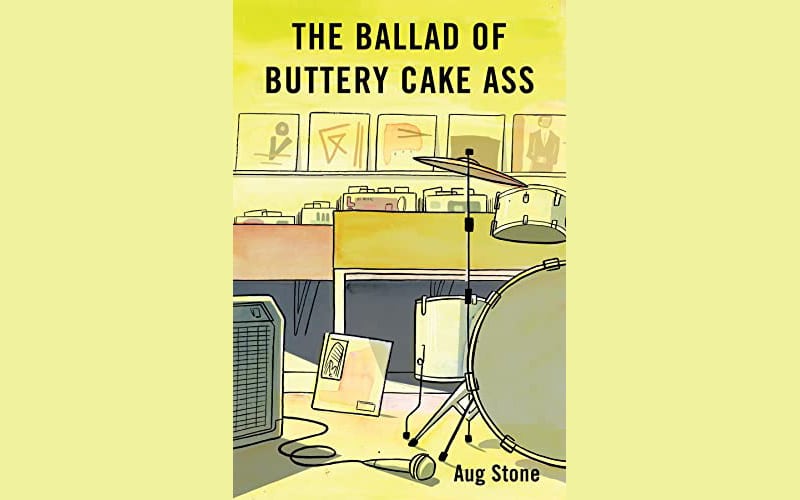I’m a bit annoyed that I didn’t really like The Ballad of Buttery Cake Ass. First, it’s called The Ballad of Buttery Cake Ass and that’s a great title. Second, it’s a book that most people haven’t heard of, and that got most of its – invariably positive – reviews in independent music media rather than The Guardian or The New York Times. Third, it’s written by a musician, novelist and absurdist stand-up comedian. Fourth, it’s set in the 90s, which as everyone knows is the greatest decade in human history. Fifth, it’s about the ludicrousness of teenage obsession. In short, it’s a book that sounds like I should love it, with the added bonus of being a book that is so obviously cool that if I liked it, that would obviously mean that I, too, might be cool. Alas, then.
Buttery Cake Ass are a band. Or, rather, they were a band. Except, rather like the moment when the two founders of BCA appreciate that they might have been meant for each other because they’re both the kind of people who’d be kept up at night wondering whether a giant aquarium without any water in it is still an aquarium, there doesn’t seem to be any material record to prove that BCA ever really existed. Is a band you can’t listen to still a band?
Well, the novel’s narrator and his best friend, Trig, certainly believe so, and it becomes the guiding quest of their youth to acquire a copy of BCA’s legendary (perhaps in more than one sense) album, Live in Hungaria – which, as you might expect given what you know already, was neither recorded live, nor anywhere close to Eastern Europe. To achieve their grail, the boys scour record shops, harass those who might once have come into contact with the band, and piece together second and third hand anecdotes to give the reader a history of the long-defunct Buttery Cake Ass.
None of this explains why I didn’t like it. In fact, writing the summary, reminds me again why I ought to have liked it. But the writing just doesn’t let me. There’s the issue of how much of the book is spent dealing with the possibly mythological and definitely long-winded story of how the band got their name. A lot. There’s the issue of the fact that the narrator haphazardly drops the ‘g’ at the end of present participles, in the world’s laziest and most irritating attempt at evoking an accent in prose that is otherwise totally standard. Maybe the self-indulgence and sloppiness wouldn’t bother you as much as they did me. Or maybe you’re just cool enough for this book. I wasn’t.






Click here to change your cookie preferences